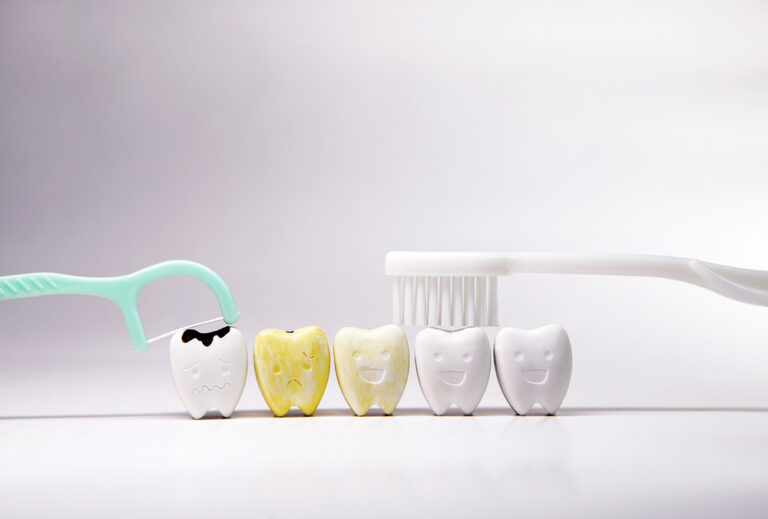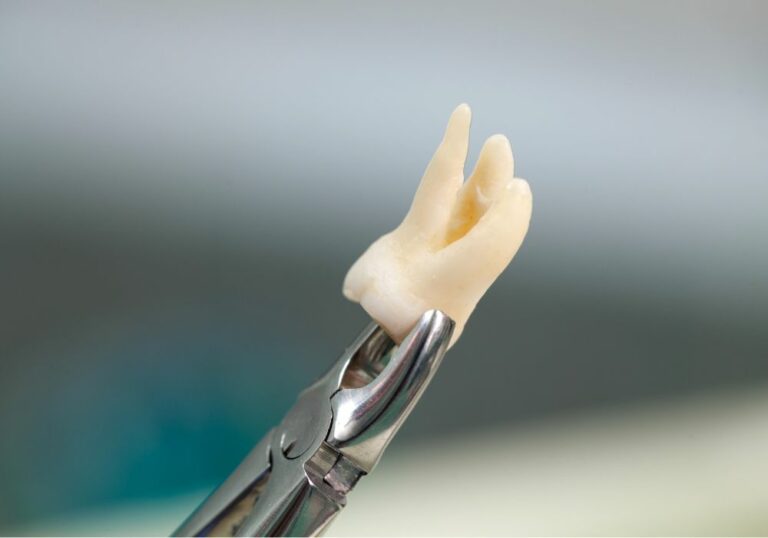Every parent is finely tuned to each and every milestone their baby should be reaching, and – rightly or wrongly – hitting each one on time can be a source of great pride.
However, if your child seems to be behind on any developmental indicator, it can equally be a source of stress – so in this post, we talk about the question of when to worry about baby teeth not coming in to hopefully put your mind at ease.
If you’re interested in finding out why we even have baby teeth, you can also check out this video before reading on.
When to Worry About Baby Teeth Not Coming In
What’s considered “normal”
Before we talk about what constitutes late tooth eruption in babies and when late eruption might be a cause for concern, let’s start by talking a bit about what’s considered “normal”.
The first teeth to erupt are usually the front ones at the bottom, technically known as the lower central incisors, and these usually appear at about the six-month mark.
The lower central incisors are usually followed by the upper central incisors, and after this, the upper lateral incisors appear, the teeth to either side of the central ones.
However, some babies can start growing their first teeth at just fourth months – and especially precocious infants can even be born with teeth already present in their mouths.
At the other end of the scale, some babies have no teeth at all until after their first birthday, so this gives some idea of how much the tooth eruption timeline can vary.
Furthermore, in some babies, the upper incisors will appear before the lower ones, something that’s also quite normal.
Subsequently, after the first teeth appear, there is an accepted pattern of eruption that your baby may or may not follow until he or she has all 20 baby teeth.
This usually happens by the age of three – although again, this is not fixed, and sometimes it takes until age four or even later for all of the baby teeth to grow.
A guideline, not a strict schedule
The first thing to note is that babies’ development varies wildly, and if yours doesn’t follow the “normal” pattern, it’s usually nothing to worry about.
What should already be apparent is that, even if there is an accepted “guideline” for when to expect babies’ teeth to erupt, a guideline is all it is, and if your baby chooses to do things differently, it’s usually nothing to worry about.
Baby teeth may appear earlier or later than expected, and they may also erupt in an unexpected order that doesn’t follow the pattern you have probably read about online.
However, the important thing to remember is that this is not a problem and is nothing to worry about. Babies’ teeth appear in the order they choose to appear, and as long as they all grow eventually, it doesn’t matter if they are late or early – or if they appear in the “wrong” order.
A summary of “normal” tooth eruption

Here’s a summary of when you should expect a baby’s teeth to erupt, although not all babies’ teeth will appear in the order of the following timeline.
- Lower central incisors – 6-10 months
- Upper central incisors – 8-12 months
- Upper lateral incisors – 9-13 months
- Lower lateral incisors – 10-16 months
- Upper first molars – 13-19 months
- Lower first molars – 14-18 months
- Upper canines – 16-22 months
- Lower canines – 17-23 months
- Lower second molar – 23-31 months
- Upper second molar – 25-33 months
What “normal” means
Having given this summary of what is considered “normal”, it’s worth stressing one more time that this doesn’t necessarily equate to what “should” happen.
“Normal” here just means what happens in the majority of cases, but if your baby follows a slightly different path, it’s nothing to be worried about. As long as all your baby’s teeth grow in eventually, it’s usually nothing to worry about.
When to take your baby to see a dentist
All parents are worriers, especially first-time parents, and it is normal to be concerned about every developmental milestone your baby is due to meet.
However, having said everything we can to put your mind at rest, you should still monitor your child’s dental development because sometimes you may need to seek the help of a dental professional.
Generally speaking, after your child passes their first birthday, if there is no sign of any teeth within the next month or two, it could be time to take your child to see a dentist.
Similarly, if the top teeth develop first and there is no hint of bottom teeth growth within the next six months, you should also consider seeing a dentist, even if it’s just to reassure you that everything is on the way.
Finally, if your child does not have all 20 milk teeth by age three, you might consider seeing a dentist – although in some cases, a child can reach age four before all 20 teeth are present.
Some reasons for teeth to develop late
Notwithstanding the natural variation between children and when their teeth erupt, there are some factors that can affect how quickly they appear.
One that can’t be controlled is genetics – if your or your partner’s teeth erupted late, there is a higher chance that your child’s teeth will also erupt late.
However, beyond simple genetic inheritance, other factors may also play a part.
They include the following:
-
Premature birth or low birth weight
If a baby is born prematurely, it may affect its later development, which may include how early or late the baby’s teeth erupt.
Similarly, babies that are born underweight may also develop more slowly, and this may include how early or late their teeth appear.
-
Malnutrition
Babies that are malnourished, either during pregnancy or after birth, may also develop more slowly, and a common symptom of this is that their teeth may appear later than average.
-
Certain syndromes
A range of syndromes may affect baby development, including the emergence of their teeth.
For example, Down’s syndrome, Apert syndrome, Ellis-van Creveld syndrome, Hutchinson-Gilford progeria syndrome, Zimmermann-Laband-1 syndrome or Axenfeld–Rieger syndrome may all cause baby teeth to develop later.
-
Developmental disorders
Developmental disorders, including cleidocranial dysostosis, ectodermal dysplasias and regional odontodysplasia can all result in baby teeth appearing later than average.
-
Endocrine disorders
Finally, certain endocrine disorders may also cause baby teeth to develop slower than expected. This is because the endocrine system produces hormones that regulate growth and development.
Such conditions may include hypothyroidism, hypopituitarism and hypoparathyroidism.
FAQs
Can late tooth development cause problems for a baby?
Although late tooth eruption is usually nothing to worry about, it can be an indication that your child may have trouble with their teeth later in life.
Specifically, if a child’s teeth grow significantly later than usual, it can indicate that they will need orthodontic intervention later to straighten their permanent teeth.
However, this is still nothing to be unduly worried about since up to 80% of children in the United States require some form of orthodontic care, so there’s a high chance your child will need some kind of orthodontic intervention whether their baby teeth are “on time” or not.
When should you see a dentist about your child’s baby teeth?
As we’ve already mentioned, if your child has no teeth at all several months after his or her first birthday, you should consider seeing a dental professional for advice.
Similarly, if the top teeth begin to develop but the lower teeth show no signs of erupting over six months later, this could also be a sign that you should seek the advice of a dental professional.
Much later, if your child’s milk teeth are not fully developed by age three or four, you should also think about asking your dentist for advice.
Also, if you notice that your child has missing teeth, widely spaced teeth, big gaps between each tooth or excessively large or small teeth, you should seek the advice of a dental professional, even if it’s just to put your mind at ease.
Why is it important to take care of milk teeth?
Some parents might think that if milk teeth are going to fall out anyway, it’s hardly worth taking care of them – but milk teeth are still extremely important.
Milk teeth are important for chewing, and they are also important for correct speech development and facial communication, so it’s important to ensure your child’s teeth remain healthy.
Furthermore, if you send your child to school with a mouth full of rotting teeth or gaps, it can have a detrimental effect on their self-esteem, something that can carry over into their adult life, even when their permanent teeth have long since grown in.
So for all these reasons, as a parent, you have a duty to look after your child’s milk teeth and to educate them about correct dental hygiene best practices.
Does later teething mean your baby is more intelligent?
No, absolutely not. This is an old wives’ tale with no basis in truth and should be dismissed out of hand.
Just a bit of patience
Children all develop at different rates, and generally speaking, if you think your baby is slightly behind the curve, all you need is just a bit of patience.
However, if you are worried that your child is developing significantly slower than the average, you can always book an appointment with your dentist – because this will give you the peace of mind that everything is fine and your baby is well within the expected limits.






